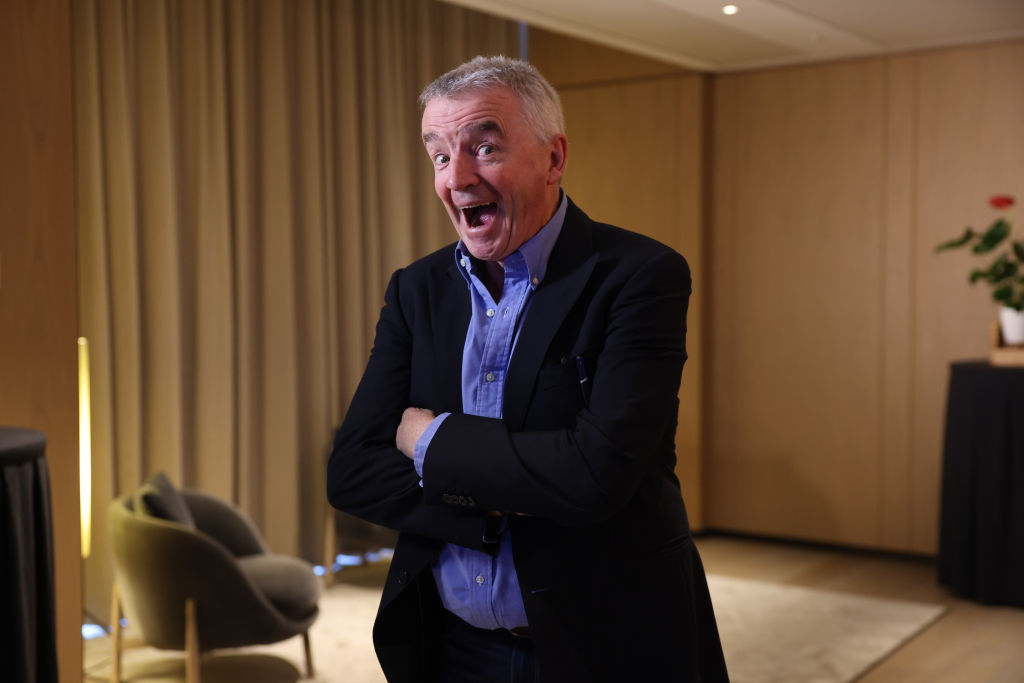After the UK Government passed its controversial Rwanda bill this week, Ryanair’s famously abrasive CEO, Michael O’Leary, made headlines for telling Bloomberg he’d be happy to pitch for deportation flights to the country.
“If it was a winter schedule and we had spare aircraft sitting around […] we would happily quote for business,” O’Leary told Bloomberg. It was a throwaway remark amid a broader and largely commerce-focused conversation about the airline’s fleet and strategy, but inevitably the reaction was polarising. Some declared that if Ryanair operated deportation flights, they’d never use the company again. Others hailed O’Leary as “a friend of the British consumer and British people”. Wags asked if it wasn’t bad enough being deported to Rwanda, without having to fly Ryanair to get there. Or whether this would inevitably mean arriving in Burundi and having to take a shuttle bus.
The Rwanda bill itself is expected to receive Royal Assent today, after which a bidding process will begin for carriers to fly the deportations. The issue is, to say the least, controversial; we can expect any provider who operated deportation flights to attract protest. But while GB News’s Chris Hope wondered if O’Leary’s statement was “a turning point” on public views of the scheme, it seems more likely that it was little more than a throwaway remark of the kind for which he is notorious.
This is far from the first provocative O’Leary headline-grabber, such as proposing to charge for toilet paper and impose a “fat tax” on obese passengers. This has long made him the CEO everyone loves to hate — hardly an obvious candidate to serve as a moral bellwether for a shift in centrist opinion on the Rwanda policy. The remarks seem even less serious when one considers that Ryanair uses Boeing 737s, short- and medium-haul planes which usually have a maximum range of 6,000-6,500 kilometres, which is less than the distance between London and Kigali.
The most likely inference is that his utterance was in much the same spirit as the toilet-paper or “fat tax” ones: a form of troll marketing through controversy. Indeed, the Rwanda Act itself has something of that quality, more a moral posture than a serious proposal. I won’t believe otherwise until actual flights (which probably won’t be Boeing 737s) take off.
Be that as it may, in an attention economy the relation between moral criticism and market share is by no means straightforward. It’s far from obvious that previous O’Leary provocations have done anything to harm Ryanair — especially not when offset against extremely cheap headline fares. And we can, perhaps, speculate that something similar may come to apply in the relation between Government policy and public response to policy.
For it’s almost always the case that pragmatism beats moral posturing, whatever people say in public. The number of consumers willing to pay over the odds for a non-Ryanair airfare, on purely anti-O’Leary grounds, is vanishingly small. And I suspect that, if the Rwanda policy ever happens and turns out to be at all effective, a similar calculus will hold. In that case, we can be certain the Labour Party’s relation to the policy would, in practice, resemble that of the average Ryanair customer: bitter complaints about its unpleasantness, mingled with resigned acceptance of its utility.











Join the discussion
Join like minded readers that support our journalism by becoming a paid subscriber
To join the discussion in the comments, become a paid subscriber.
Join like minded readers that support our journalism, read unlimited articles and enjoy other subscriber-only benefits.
Subscribe